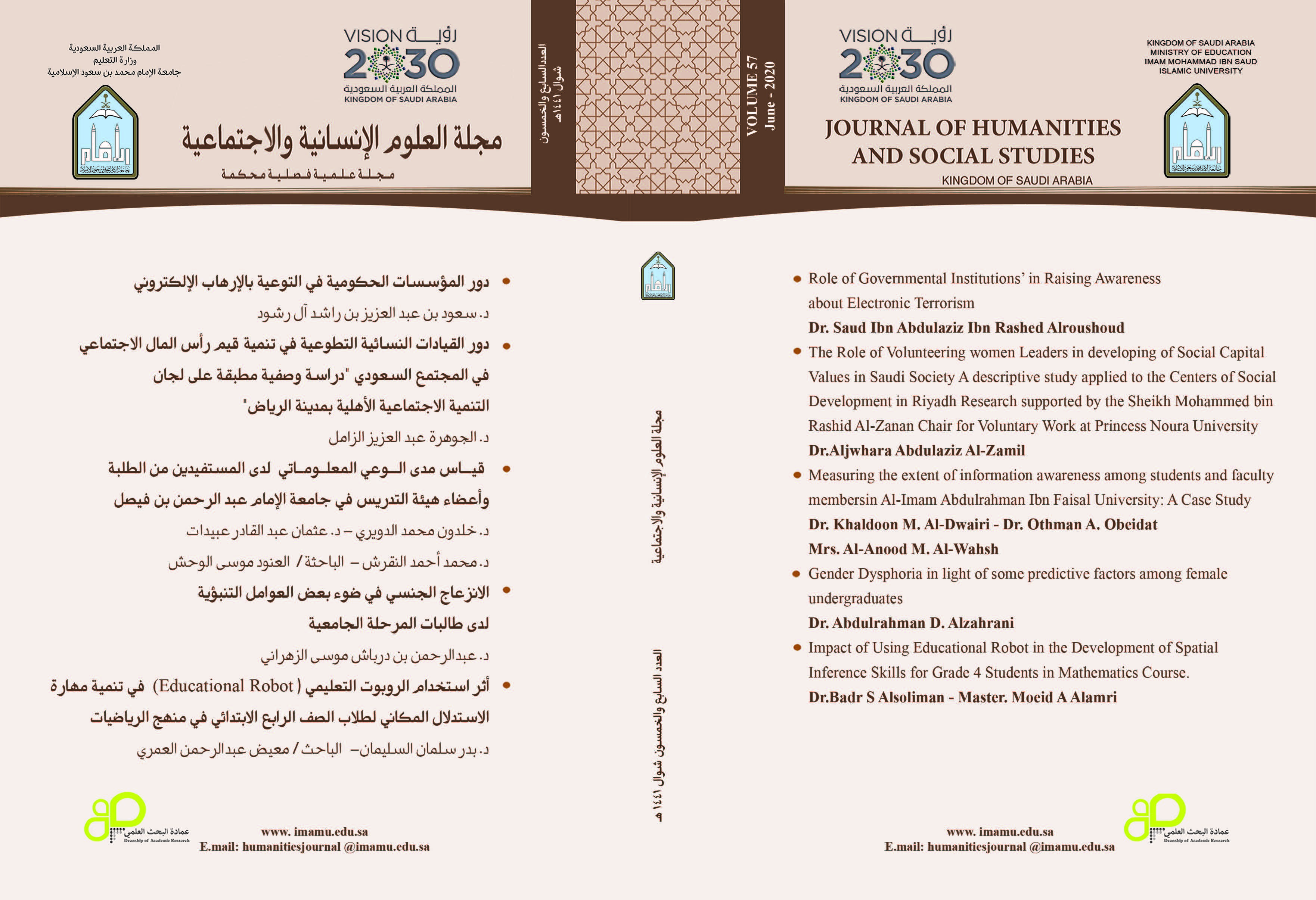Role of Governmental Institutions’ in Raising Awareness about Electronic Terrorism
Keywords:
Governmental institutions, Raising awareness, Electronic terrorism.Abstract
The paper aims to identify the role of governmental institutions in Saudi Arabia on raising awareness about electronic terrorism, to know the objectives of the awareness of electronic terrorism and its topics, as well the basis for the process of raising awareness of electronic terrorism and its means. Finally, the obstacles that limit the effectiveness of the role of governmental institutions in raising awareness of electronic terrorism and the methods to address them.
This study belongs to the studies that follow the blended approach with a random sample selected from the academic professional communities specialized in the field of sociology and social work at Al-Imam Muhammad Ibn Saud Islamic University and King Saud University. The total sample size was 46 faculty members, in addition to a selected sample of the security staff, officially or non-officially appointed to combat electronic terrorism crimes. The researcher relied on a questionnaire of open-ended questions to communicate with the respondents and obtain the required scientific data. To obtain the results, the researcher analyzed and interpreted the data.
The most important results include: (1) Maintaining the security and stability of the society is the most important goal of raising awareness of electronic terrorism, followed by promoting the role of educational institutions in the prevention of electronic terrorism, and spreading the comprehensive awareness of electronic terrorism and its dangers. (2) The academic communities of Al-Imam and King Saud Universities have agreed that youths are the most important social target group of raising awareness programs of electronic terrorism. (3) The awareness of electronic terrorism is based on five main means: educational aids, media, entertainment, social media, and advocacy (4) The most important obstacles that limit the effectiveness of the role of scientific communities in the level of awareness of the crimes of electronic terrorism are as follows: the focus of the academic communities lies on their scientific disciplines only, the sensitivity of the issue and their fear of discussion, focus on the security aspects and overlooking other dimensions. (5) The material and moral resources represent the most important positive variables to enhance the motivation of the role of academic.




